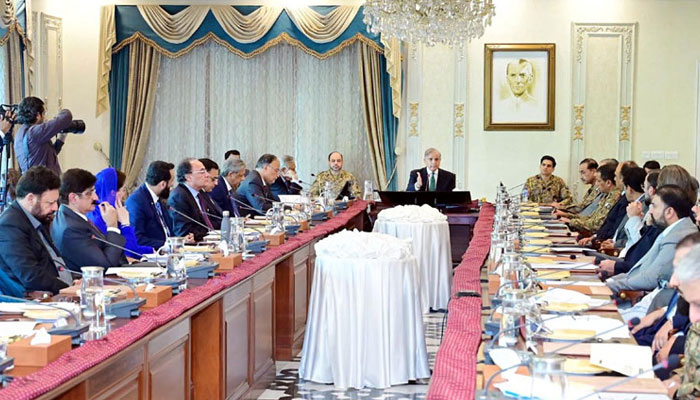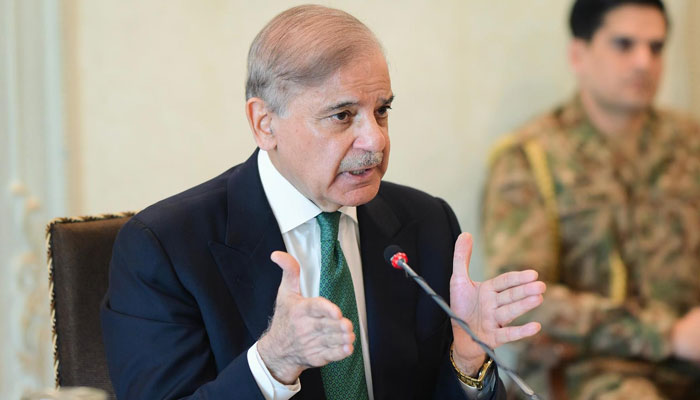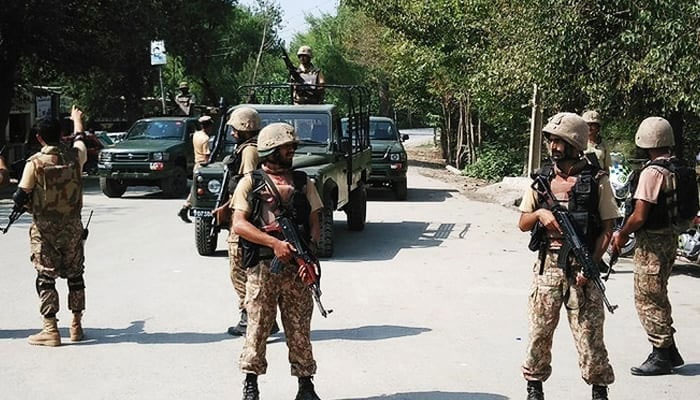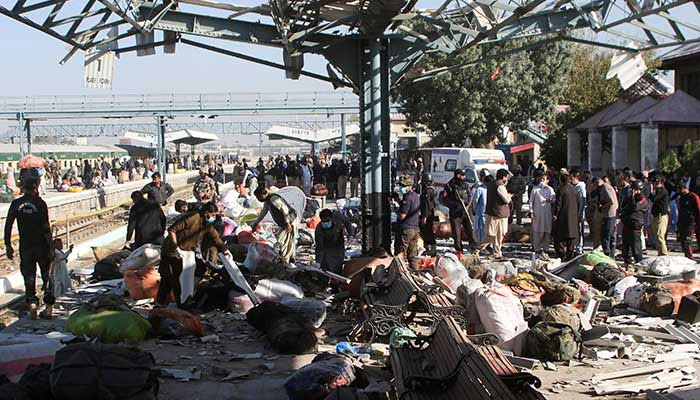Apex committee approves military operation in terror-hit Balochistan
COAS Gen Munir reiterates army’s unwavering resolve to eliminate all threats to national security
ISLAMABAD: In a major development, apex committee — the top civil-military body — on Tuesday formally approved a comprehensive military operation against terrorist organisations operating in Balochistan.
According to a statement issued by the Prime Minister Office, the top civil-military body gave its nod to a military operation in Balochistan against terrorist groups including the Majeed Brigade, BLA, BLF and BRAS who are targeting innocent civilians and foreign nationals to scuttle Pakistan’s economic progress by creating insecurity at the behest of hostile external powers.
The development came amid spike in terror attacks on security forces and civilians, with the latest deadly suicide explosion claiming at least 27 lives and left over 60 others injured at Quetta's railway station earlier this month.
The Federal Apex Committee of the National Action Plan was held with Prime Minister Shehbaz Sharif in chair and the agenda of the meeting was focused on the “Reinvigorating Pakistan’s Counter Terrorism (CT) Campaign”.
All provincial chief ministers, Chief of Army Staff General Syed Asim Munir, cabinet members and senior government officials were among the attendees of the important huddle.
The participants of the meeting were briefed on the evolving security landscape and the measures being taken to counter terrorism and other critical challenges, including general law and order situation, actions against efforts to stoke sub-nationalism, religious extremism, tackling the illegal spectrum and crime-terror nexus, subversion and disinformation campaigns, among other issues, read the statement.
The top civil-military body highlighted the necessity of a “unified political voice and a cohesive national narrative” to effectively address these multifaceted challenges.
It was emphasised that political support across party lines and complete national consensus are critical to reinvigorating the national counter terrorism campaign under the framework of Vision Azm-e-Istehkam.
The meeting also agreed upon revitalisation of National Counter-Terrorism Authority (Nacta) and the establishment of National and Provincial Intelligence Fusion and Threat Assessment Centre.
The statement said civil-military leadership adopted a whole-of-system approach, incorporating diplomatic, political, informational, intelligence, socio-economic, and military efforts to address these issues comprehensively.
“Specific emphasis was placed on strengthening collaboration between federal and provincial governments and between relevant institutions and ministries to ensure seamless execution of the CT [counter-terrorism] campaign. It was decided to establish District Coordination Committees under the provincial apex committees to ensure implementation of directions received from federal and provincial governments.”
In addition to this, the forum demonstrated political resolve to dismantle ecosystem of illegal spectrum and crime-terror nexus.
Speaking on the occasion, COAS General Munir reiterated the Pakistan Army’s unwavering resolve to eliminate all threats to national security and provide robust support to the government’s initiatives aimed at ensuring peace and stability.
All those who creates obstruction in Pakistan’s security or tries to stop them from performing their duty would face the music, he added. The army chief also called for putting up collective fight against the menace of terrorism.
“Every Pakistani is a soldier in the war against terrorism, whether in uniform or not.”
He further said that the Constitution mandated them to ensure the internal and external security of Pakistan.
The COAS maintained that the personnel of armed forces and other law enforcing agencies were compensating for shortcomings in governance on daily basis through the sacrifices of their martyrs.
At the conclusion, PM Shehbaz directed all the stakeholders to pursue the outlined initiatives with vigor, ensuring their timely implementation.
The premier underscored the importance of sustained, coordinated efforts to protect Pakistan’s sovereignty, ensure the safety of its citizens, and reinforce economic and social stability.
Terrorists, in collaboration with hostile agencies, have been consistently targeting innocent civilians, foreign nationals and personnel of armed forces to destabilise the country.
In a terror attack last week, seven FC personnel were martyred and 18 others wounded in a pre-dawn attack on a security check post in the Johan area of Kalat. In another brutal incident in August, 23 passengers travelling to their destinations were killed after being offloaded from buses and trucks in the Rarasham area of Musakhail.
The third quarter (July-September) of 2024 saw a sharp increase in fatalities of terrorist violence and counter-terrorism campaigns, with a 90% surge in violence, according to a report issued by Center for Research and Security Studies (CRSS).
A total of 722 people were killed, including civilians, security personnel, and outlaws, while 615 others were wounded in as many as 328 incidents recorded during the period under review.
Nearly 97% of these fatalities occurred in KP and Balochistan – marking the highest percentage in a decade, and over 92% of these incidents of terror attacks and security forces’ operations were recorded in the same provinces.
The total fatalities from three quarters of this year have now surpassed the total fatalities recorded for the entire 2023; the number of fatalities rose to at least 1534 in the first three quarters compared to 1523 in 2023.
Meanwhile, terrorist groups continue to reorganise and beef up their ranks. Most of the terror attacks remained unclaimed by terrorist or insurgent groups, likely for tactical reasons, as per the report.
-
Security forces gun down 30 terrorists in multiple IBOs in KP: ISPR
-
MQM-P calls for new province in Sindh
-
US report validates Pakistan military edge over India: PM
-
Banned TTP poses serious threat to Pakistan security: UNSC panel
-
CM Afridi clarifies remarks on by-poll after ECP requests army deployment
-
Dubai sees 3.2m Pakistani passengers in 2025 as airport sets new milestone
-
Security forces kill 23 Indian proxy terrorists in KP's Kurram
-
Pakistan to construct island to boost oil exploration: report















